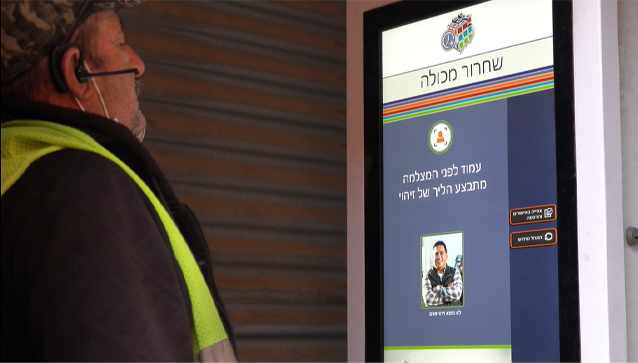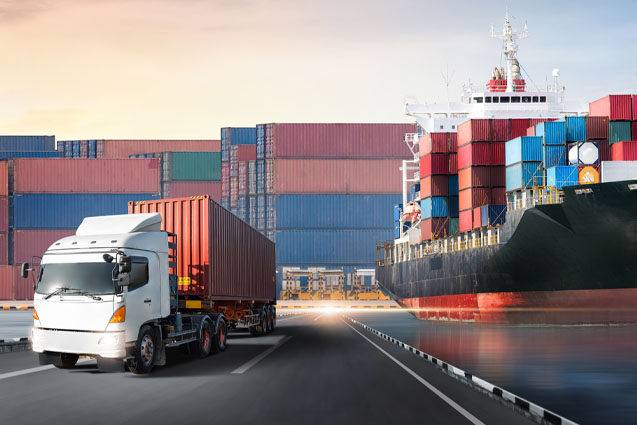Group 207
Unlocking Efficiencies in Port Operations
As supply chain disruptions continue to wreak havoc on global economies, port security and landside operations are increasingly burdened with dynamic security challenges, operational risks, and tightening regulations.
Efficient, rapid door-to-door cargo transport is critical as the volume of goods transported by global container fleets has nearly doubled in recent years and large increases in maritime traffic have led to cargo pileups at ports that have reached crisis levels during the pandemic.
The Challenge
A leading maritime logistics operator in the Port of Ashdod, Israel, was challenged with a manual check-in, credentialing, and identification authorization process for its maritime cargo handlers - resulting in long lines, inefficiencies, and frustration among contracted drivers.
Group 207 wanted to explore new approaches to unlocking efficiencies in port operations by helping combat customs clearance delays and traffic bottlenecks: docking and unloading delays of cargo containers, protecting goods from cargo pilferage, and meeting security clearances. Moreover, the team needed an accurate and more efficient way of identifying drivers at the port to help speed up their ability to access and move freight from ship to truck more easily and quickly.
The process of credentialing drivers was inefficient, slow, manual, and carried too great of a risk for error. Group 207 turned to Oosto to modernize its processes and reach its goals.
About Group 207
-
Headquarters:
Israel Ports Park in Ashdod, Israel
-
Industry Sector:
Rail Transportation
-
# of Employees:
35 employees across all locations
-
Year Founded:
1996
-
Services:
Group 207 brings together under one roof six companies that offer a wide range of logistics solutions including transportation, storage, and handling of cargo and containers. The group operates from one of the most advanced logistics centers in the country, combining technology and advanced working methods in a one-stop-shop to offer customers comprehensive logistics services tailored to the needs of each and every client.

The OnAccess solution instantly and accurately recognizes authorized individuals through Oosto Vision AI, and this has led to a substantial amount of manpower saved, increased operational transparency, and a rapid return on investment.


Now, we don’t need the paperwork, we don’t need the receptionist. The truck driver just goes to a kiosk, the system recognizes the driver and he can access the cargo he came for. Today, if you ask any driver at this port where the most convenient place to get logistics services in terminals is, they will definitely tell you it’s Group 207.
The Results
Group 207’s implementation of Oosto’s frictionless OnAccess solution demonstrates the value that real-time facial recognition can offer logistics service providers in today’s pacity-constrained supply chain environment.
Group 207 was able to accurately measure the man-hours saved, both on the part of the third-party drivers and even Group 207’s own manpower, and deliver almost immediate payback.
In fact, the waiting time was reduced by 33-50% per driver, which translates into significant throughput improvements - and much happier drivers.
Logistics providers and transportation companies faced with operational burdens on port security measures and procedures to safeguard people, ports, and cargo will only intensify.
As a result, the adoption of technologies such as Oosto Vision AI is accelerating as innovative and forward-thinking logistics companies look to stay competitive, solve business challenges, gain greater operational efficiencies, and ensure safer, more secure spaces.

 All Case Studies
All Case Studies

